Appendix
The Practice of Thought-Watching
 ental traps are habitual modes of thinking that disturb our ease, take up enormous amounts of our time, and deplete our energy, without accomplishing anything of value for us or for anyone else in return.
ental traps are habitual modes of thinking that disturb our ease, take up enormous amounts of our time, and deplete our energy, without accomplishing anything of value for us or for anyone else in return.
The word value here, and throughout this book, refers to whatever seems worthwhile to us. This book is not a moral tract. It doesnt take the side of useful work against recreation, or social involvement against self-indulgence. If were content to watch television all day, then this activity will not be counted here as a waste of time. Watching television has value for us.
The fact remains that we often exhaust ourselves in troublesome pursuits that dont in any way further the actualization of our very own values, whatever they may happen to be. These useless pursuits are the mental traps. Mental traps keep us from enjoying television as readily as they keep us from serious work. They are absolute wastes of time.
Mental traps are identified not by the content of our ideas but by their form. Any aspect of daily lifehousehold chores, weekend recreation, careers, relationshipsmay be thought about either productively or unproductively. We fall into the same traps when we wash the dishes as when we contemplate marriage or divorce. Its not the subject of our thinking, but how we deal with the subject, that makes the difference. When we rid ourselves of any one trap, we find that our problems in every department of life are simultaneously eased.
We build unproductive structures of thought on every conceivable timescale. One and the same mental trap may hold us in its sway for a fleeting moment or for a lifetime. And the momentary traps are just as pernicious as the lifelong traps. Because of their brevity, the mere moments of wasted time and energy are especially difficult to grasp and correct. Theyre over and done with before were aware of what were doing. The result is that theyre fallen into with monumental frequency. Its doubtful that the average twenty-first-century urban adult is altogether free of them for more than a few minutes at a time. By the end of the day, the cumulative effect of these brief episodes may be an entirely unaccountable exhaustion.
The basic idea underlying mental traps was concisely expressed a few thousand years ago:
To everything there is a season, and a time for every purpose under Heaven.
When we deviate from this profound advice when we begin at the wrong time, proceed at the wrong pace, quit too soon or too latewe fall short of what we might otherwise accomplish.
Again, theres no attempt here to prescribe the content of our activities. To everything there is a season. Both the enjoyment of good food and the scramble up the ladder of success may be legitimate parts of our life. But if we try to advance our career while were eating dinner, we ruin our digestionand we cant really do good work as we pass the salt and slurp the soup. Neither of our values is well served. Given the same values, we could make far better use of our time and resources.
Our lapses from doing the best thing at the best time and in the best way fall into recurrent and readily identifiable patterns. These are the mental traps.

If mental traps are injurious to us, why do we fall into them? Why dont we simply quit? There are three reasons. First, were often unaware of what were thinking. Second, even when we are aware of our thoughts, we often dont recognize their injurious nature. Third, even when we recognize their injurious nature, we often cant quit because of the force of habit.
If the thinking that goes on when were trapped remains below the level of consciousness, we cant even begin to change it. We cant choose to stop doing what were not aware of doing in the first place. If we didnt know that we wore clothes, it would never occur to us to take them off, even if we felt too hot. By the same token, when we dont know that were thinking unproductive thoughts, the option of stopping doesnt present itself.
The idea that we can be unaware of our own thoughts may strike us as paradoxical, for we tend to equate consciousness with thinking itself. But the two are by no means identical processes. We may be exquisitely conscious of the taste of an exotic fruit or the feel of an orgasm without having a thought in our head. And we may be filled to overflowing with an unbroken stream of ideas without noticing a single one. The following mental experiment will convince us of this important point.
When we arent occupied with any definite business or pleasure, our thoughts often wander from one topic to another on the basis of the flimsiest associations. This experiment can be conducted only when we happen to catch ourselves in the midst of such wanderings. For those who dont fall asleep quickly, the time spent lying awake in bed is especially rich in this material. As soon as we catch ourselves wandering, we can begin a backward reconstruction of the sequence of ideas that led us to where we are. If we were thinking about the beauty of Paris, we may recall that this was preceded by a thought about a friend who has just returned from there. The idea of the friends return may have come from the recollection that this person owes us money, which may in turn have come from ruminations about our financial difficulties, which may have been elicited by the idea that we would like to buy a new car.
In this experiment, its essential not to decide ahead of time that we will reconstruct the next few minutes of thought. We have to wait until we catch ourselves in midstream. When this happens, were invariably surprised at the twists and turns taken by the stream of our ideas. Without an active reconstruction, we would never have suspected that the thought of Paris had its origin in the desire for a new car! And its this experience of surprise that proves the point. We wouldnt be surprised unless we didnt know what we had been thinking. Our thinking was unconscious. Evidently, the process of thinking no more depends on our continuous attention to it than walking depends on our continuously keeping track of the position of our arms and legs.
Mental traps often remain below the level of awareness in just this way. We fall into them automatically, without making a conscious decision. The first requirement for getting rid of them is to learn the art of detection. This book provides the materials necessary to meet that requirement. Its a naturalists guide to a certain order of mental flora, outlining the conspicuous characteristics of its various members, replete with illustrative examples. Its a handbook for the identification of mental traps.




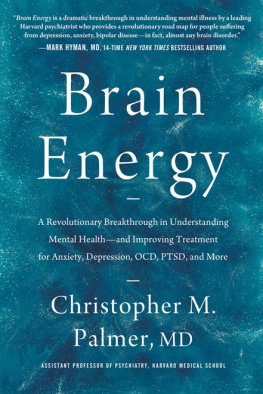

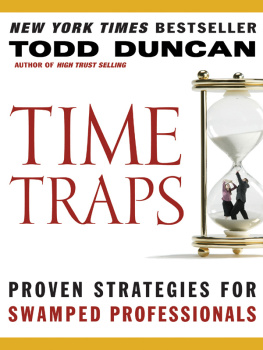


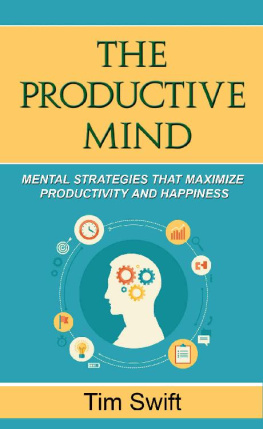
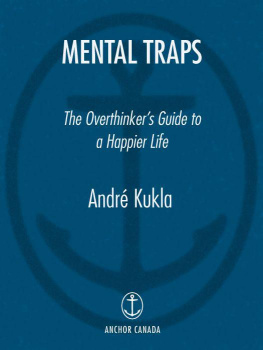
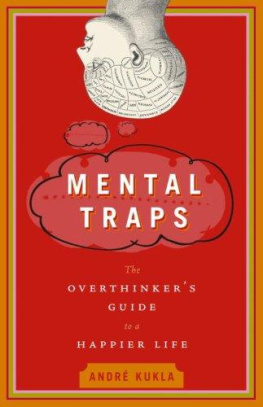
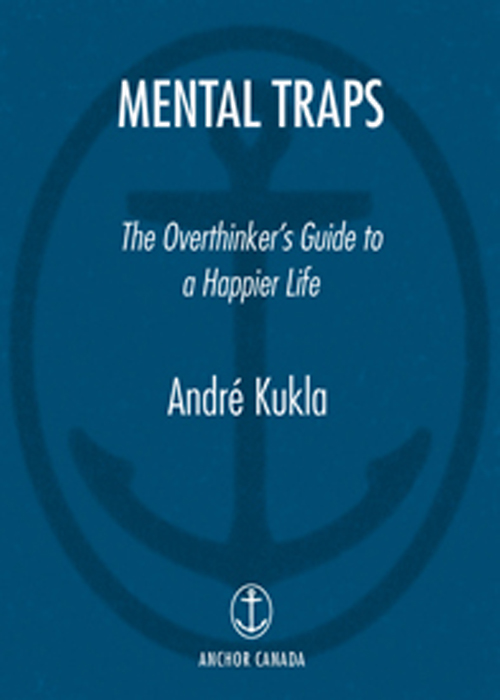


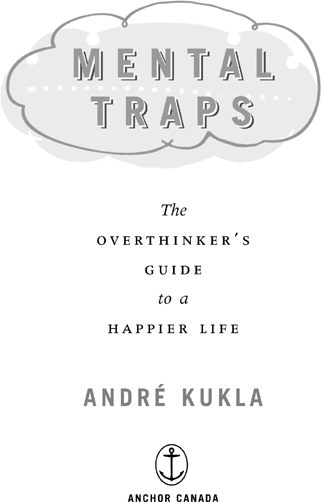

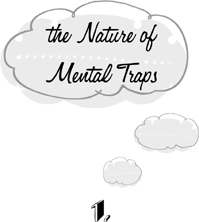
 ental traps are habitual modes of thinking that disturb our ease, take up enormous amounts of our time, and deplete our energy, without accomplishing anything of value for us or for anyone else in return.
ental traps are habitual modes of thinking that disturb our ease, take up enormous amounts of our time, and deplete our energy, without accomplishing anything of value for us or for anyone else in return.